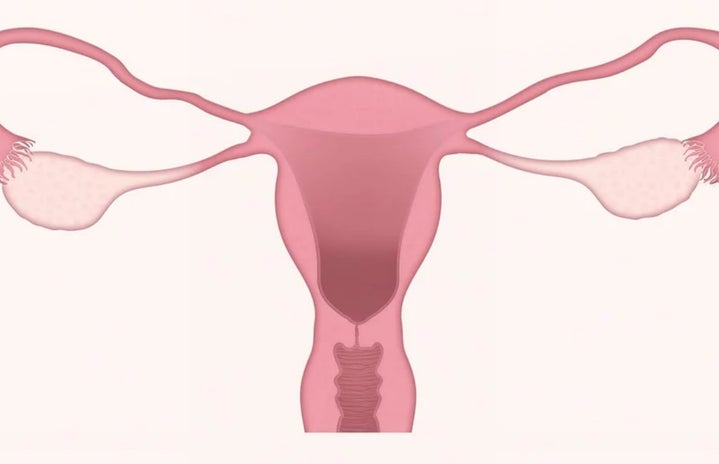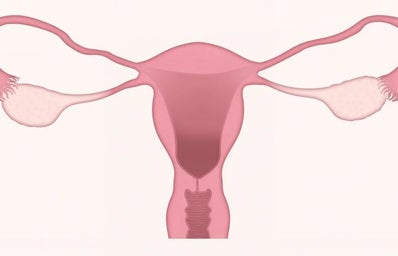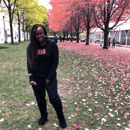Her Campus (HC): What is endometriosis?
Rissa Flanders (RF): Endometriosis is a common disorder in which the tissue that usually lines the inside of the uterus grows outside of the uterus.
HC: When were you diagnosed with endometriosis?
RF: I was officially diagnosed with endometriosis in June of 2019. For a formal diagnosis, you need to undergo a diagnostic laparoscopy or a similar procedure. The growths typically do not show up on ultrasounds or x-rays, so you need to undergo this procedure to get a formal diagnosis, and then figure out treatment from there.
HC: How were you diagnosed?
RF: I was diagnosed with a diagnostic laparoscopy, which is a minor operation that involves the surgeon using a camera, so they are able to see any endometriosis growths. I was lucky enough to get doctors that knew a lot about endometriosis and did not dismiss my pain and symptoms, so I got diagnosed early, at age 18.
HC: How did you feel after you were diagnosed? Any changes from then to now?
RF: Being diagnosed was a relief at first. It reassured me that there was something wrong, and they knew what it was, so then it could be fixed, and it would magically not be a burden to me. Now I know it is not that simple. It is something that I will have to deal with my entire life. I am still pleased that I got a diagnosis, but I wish there were more available options for how to treat and control endometriosis.
HC: How did the people around you react to the news i.e., family members?
RF: I have other family members that were diagnosed with endometriosis, so the diagnosis was not a surprise to my family. It did make a difference, though, since it gave them a resource to learn about what I was going through, and that way, they could educate themselves.
HC: What is the biggest challenge with your condition?
RF: Endometriosis affects everyone differently, some people can have massive growths and not feel them and never know they have one, and other people can have tiny growths and be in tremendous pain. For me, it comes with debilitating pain that makes it impossible to do anything without the assistance of pain medicines.
HC: What would you say has changed the most due to your condition?
RF: I think my ability to do activities has been affected the most. There have been days where it is impossible to go to class or even leave the room, which has made it challenging to keep up sometimes. I will say that it does get manageable over time because you learn what helps and what does not help.
HC: What is endometriosis to you?
RF: Endometriosis is something I will always have to live with, and it is a burden I will be stuck with, but that is okay, I can handle it, and I have some great doctors and nurses that help me.

HC: What are the common misconceptions of endometriosis?
RF: Endometriosis is common, which I have discovered surprises people. According to research, it affects about 11% of women. I do not know if there are a lot of common misconceptions. I feel like it is just not known enough to those not affected for there to be common misconceptions.
HC: What treatment options have you pursued?
RF: I started with hormone therapy before I had the diagnosis, along with pain medicine. Then I had a laparoscopy to diagnose me with endometriosis and removed some of the growths. Now, I am back on hormone therapy.
HC: What would you say to someone who thinks they might have endometriosis?
RF: Endometriosis can present itself in many different ways. Some people can have tons of growths and have very little pain, while others with very small growths can have tons of pain. If your periods come with debilitating pain, that is not normal, and seeing a doctor is the best thing that you can do.
Want to see more HCFSU? Be sure to like us on Facebook and follow us on Instagram, Twitter and Pinterest!



